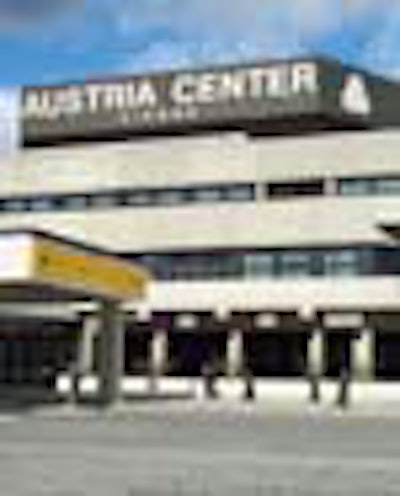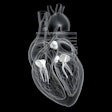
VIENNA - The European Congress of Radiology may be moved from Vienna to another European city starting in 2002, according to ECR 2000 president Dr. Rolf Günther. Günther, speaking at the meeting’s opening address on Sunday, said that a move has been under discussion for some time and was not precipitated by the current political climate in Austria.
This year’s ECR meeting has fallen under a cloud of controversy due to the participation of the right-wing Freedom Party in Austria’s federal government. The Freedom Party’s controversial stands on issues like foreign immigration and Austria’s World War II past have prompted many human rights advocates to urge a boycott of the country.
In his opening address, Günther indicated that the ECR and its sponsoring organization, the European Association of Radiology, have been concerned about the situation in Austria, in spite of the decision to go ahead with this year’s meeting. "The ECR is a non-political scientific organization, and our presence here should not be seen as an endorsement of the current Austrian political scene. Quite the contrary," Günther said.
Günther chose the moment to announce that the ECR is looking for a new host city for its 2002 and 2003 meetings. Both Barcelona and Brussels have been mentioned as candidates, although Günther acknowledged that finding a suitable venue on such short notice could be difficult. The ECR moved to Vienna on a permanent basis in 1991, but before that rotated the meeting among European capitals.
Although the ECR’s timing would seem to indicate that it was responding to boycott pressure, Günther said a move was previously under consideration. "A change of the congress venue has been discussed for a long time, long before the current political developments," Günther said. "The decision is being made … in the best interest of our congress, free from any political pressure of any kind."
Other changes will also be in store for the ECR. Starting with the 2001 meeting, the congress will move from its Sunday-through-Thursday schedule to a Friday-though-Tuesday program to enable members to get cheaper plane fares. The meeting will also be shortened by half a day.
The ECR’s actions may be in response to ongoing questions about the conference’s move to an annual frequency, which began with this year’s congress. Some industry observers believe that there may not be enough support for an annual pan-European congress, and question whether the congress may be trying to upstage national radiology meetings.
Günther reiterated the ECR’s position on the importance of holding the congress annually. The rapid growth of knowledge and technical development in radiology demand better communication, which is facilitated by an annual conference, he said. And the ECR sees national and subspecialty societies as crucial building blocks in helping create a European radiology consciousness.
Günther devoted the rest of his address to the challenges facing European radiology in coming years. Radiology is not a protected species, he noted, and radiology services are not reserved for radiologists. In some countries, 75% of radiology studies are conducted by non-radiologists. Still, Günther noted, "Turf battles yield only losers, and these are patients."
Professional competence is one solution to preserving radiology’s role in healthcare. Radiology also needs to polish its public image and make its advances and accomplishments better known to the public. The Internet can be an important medium in helping hospitals and imaging centers disseminate information about imaging to the public, he said.
Another possible solution could come through increased support for radiology research, which drives the clinical and technical advances that are the lifeblood of the specialty. "Research funding and the promotion of research are crucial if we are to entice bright young people to our specialty and to prevent losing them to international competitors and other disciplines," Günther said.
Finally, Günther issued a challenge to ECR attendees: to create a greater Europe that is more than the sum of its individual nations. "Fragmentation into independent, small units, must be seen as an anachronism," he said. "If we succeed in creating a true European identity, an identity beyond currency and fiscal policy, then both Europe and European radiology will flourish."
By Brian Casey
AuntMinnie.com staff writer
March 6, 2000
Let AuntMinnie.com know what you think about this story.
Copyright © 2000 AuntMinnie.com















